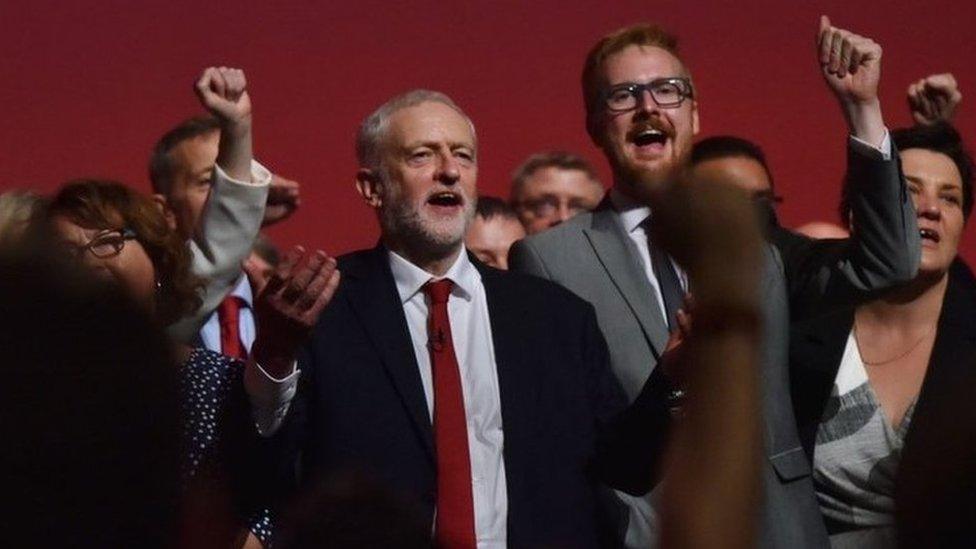Tom Watson: Labour deputy urges unity after bid to oust him
- Published
Tom Watson: "We've had a bad start to our conference"
Labour's deputy leader Tom Watson has said he was "disappointed" at a move to oust him, but has called for unity after a "bad start" to the party conference.
Speaking as he arrived in Brighton, Mr Watson said he wanted the party to come together, adding: "I always forgive and forget."
The motion, which aimed to abolish the deputy leader position, was dropped.
Labour MPs, opposing the motion, had warned against an "internal civil war".
Labour's stance on Brexit, education and public services will also be on the agenda at the annual party conference, which opened on Saturday and runs until Wednesday.
Responding to the motion, Mr Watson said: "I think it's very sad. We're supposed to be here this week to fight Boris Johnson... and I think it's been undermined on day one."
He said he was "particularly disappointed" with Jon Lansman, founder of Labour grassroots group Momentum, who tabled the motion.
Mr Watson, who was met by cheering supporters as he arrived at Brighton Station, said Mr Lansman had undermined the party as well as leader Jeremy Corbyn and Momentum itself.
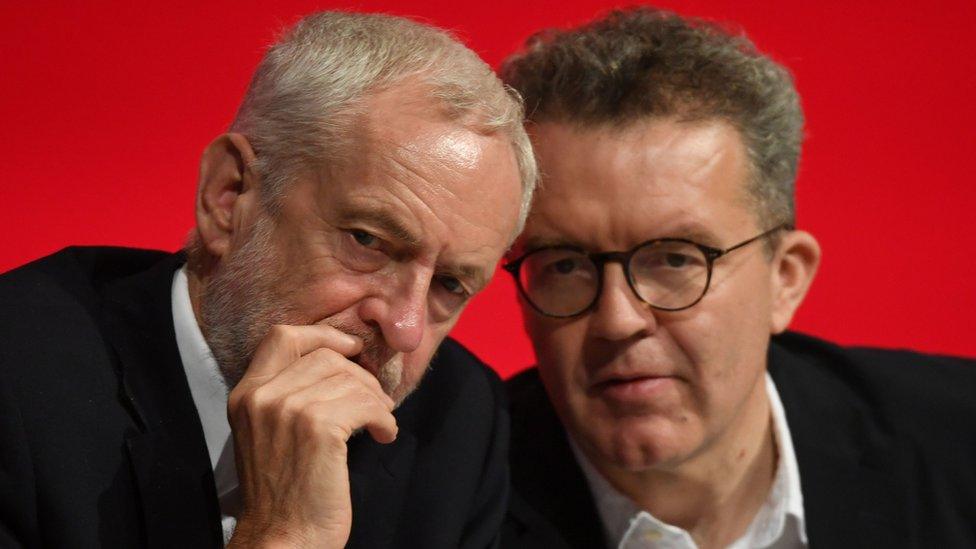
Mr Corbyn and Mr Watson at last year's conference.
He added that many Momentum members "have been in touch with me to say they were not consulted".
Mr Watson said: "I want this week to be the most positive week we can have, I want us to unify, I want us to talk about what our vision for the country during and after a general election is."


The seeds of the current rows overshadowing the first day of Labour conference were sown here in Brighton nearly two weeks ago
Jeremy Corbyn thought he had sealed a deal on Brexit behind closed doors at the TUC conference with the big unions.
The party would officially stay neutral during the election.
But Tom Watson outraged many on the left less than 24 hours later when he contradicted Jeremy Corbyn and called for an unambiguous campaign to remain.
Many on the left already regarded him as disloyal and for them this was the final straw.
There was mutterings of disciplining him but angry words only turned in to action last night.
Some of Jeremy Corbyn's closest colleagues have told me they were angry that they hadn't been told of the plot to oust him and the Labour leader himself had to call off the coup.
But the incident exposes Labour's deep fault lines just ahead of an election - not just between left and right but within the left.
Tom Watson's anti-Brexit stance meant that the left-led TSSA union which has campaigned for Remain, rallied to the deputy leader and not Momentum's Jon Lansman.
But when the deputy leader's post is reviewed, these divisions are likely to reopen.
In the short term, Labour's strategy of denouncing the Lib Dems undemocratic over Brexit and the Conservative as intolerant towards dissenters has been shattered.

Mr Watson said he learned of the plot to oust him in a text message on Friday night, while in a Chinese restaurant in Manchester with his son.
The move sparked a backlash from Labour backbench MPs who said the party should be focusing on unity ahead of a possible general election.
Mr Corbyn later suggested the role should be reviewed instead, and his suggestion was backed by the ruling National Executive Committee.
Jeremy Corbyn fields reporters' questions as he arrives at the Labour party conference
Mr Watson said he was "grateful" for Mr Corbyn's statement, but said it was the chair of the NEC, Wendy Nichols, who stopped the motion.
Len McCluskey, the general secretary of the Unite union, said Mr Corbyn "came in and calmed everybody down".
"There is resentment because Tom, a deputy leader is supposed to support the leader in any organisation and there's a perception that Tom doesn't do that," he said. "That builds up on occasion and manifests itself in frustration, but Jeremy Corbyn came in and calmed everybody down".
Differences over Brexit
Meanwhile, a row has emerged over where Labour should stand on Brexit in a general election.
BBC political correspondent Nick Eardley said the executive is to discuss a draft plan which would commit a Labour government to negotiating a new Brexit deal in three months - and putting it to the people in a referendum against Remain within six months.
But, our correspondent added, the party would not decide its preference until after a general election - meaning Labour would go into a snap poll without saying whether it wanted to remain or leave.
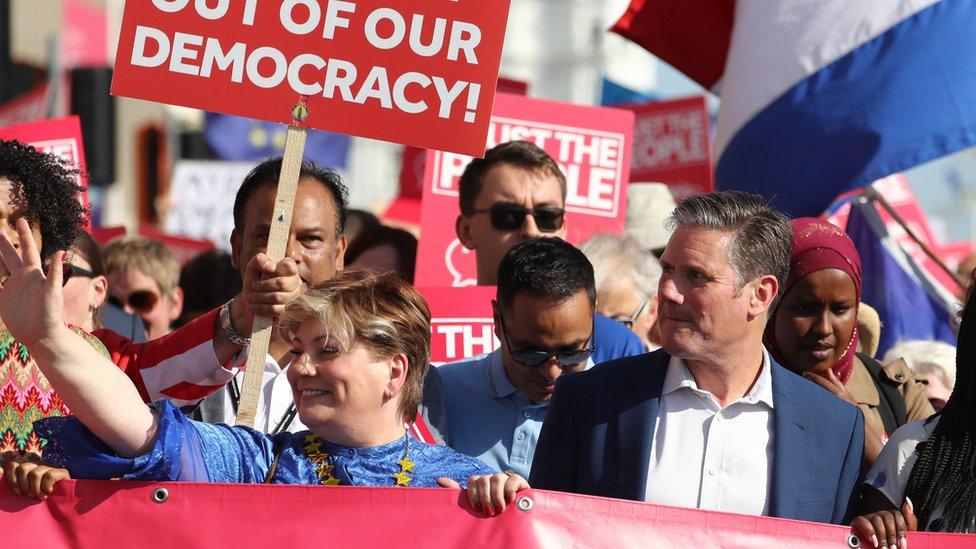
Shadow foreign secretary Emily Thornberry and shadow Brexit secretary Sir Keir Starmer
On Saturday, Labour frontbenchers Sir Keir Starmer and Emily Thornberry appeared at a rally for the People's Vote campaign, which supports another referendum, and confirmed they would back Remain.
Speaking at the rally, Sir Keir said: "It's got to go back so the public can decide. A basic question. Are you prepared to leave on the terms on offer? Or do you want to remain?
"When that time comes I will campaign for remain alongside millions people in this country."
- Published11 September 2019
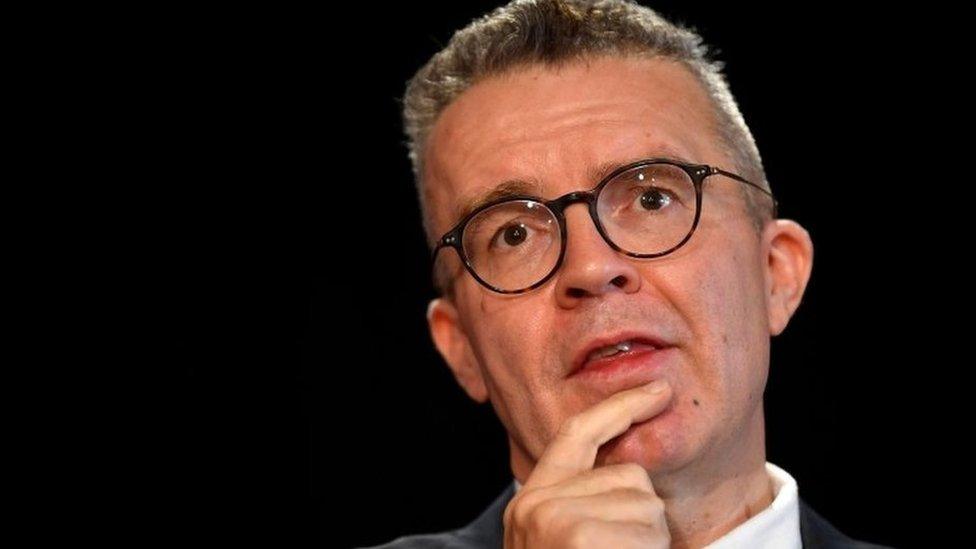
- Published11 September 2019
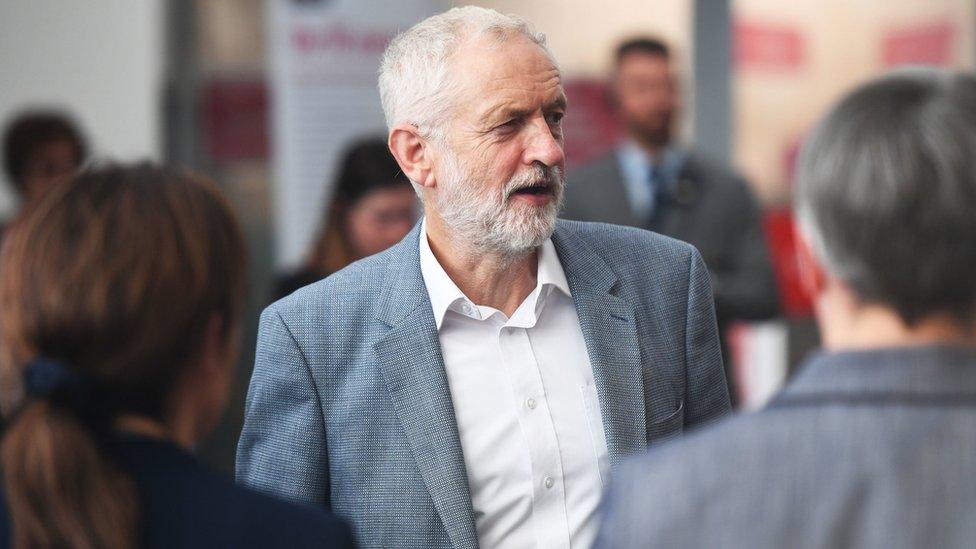
- Published21 September 2019
